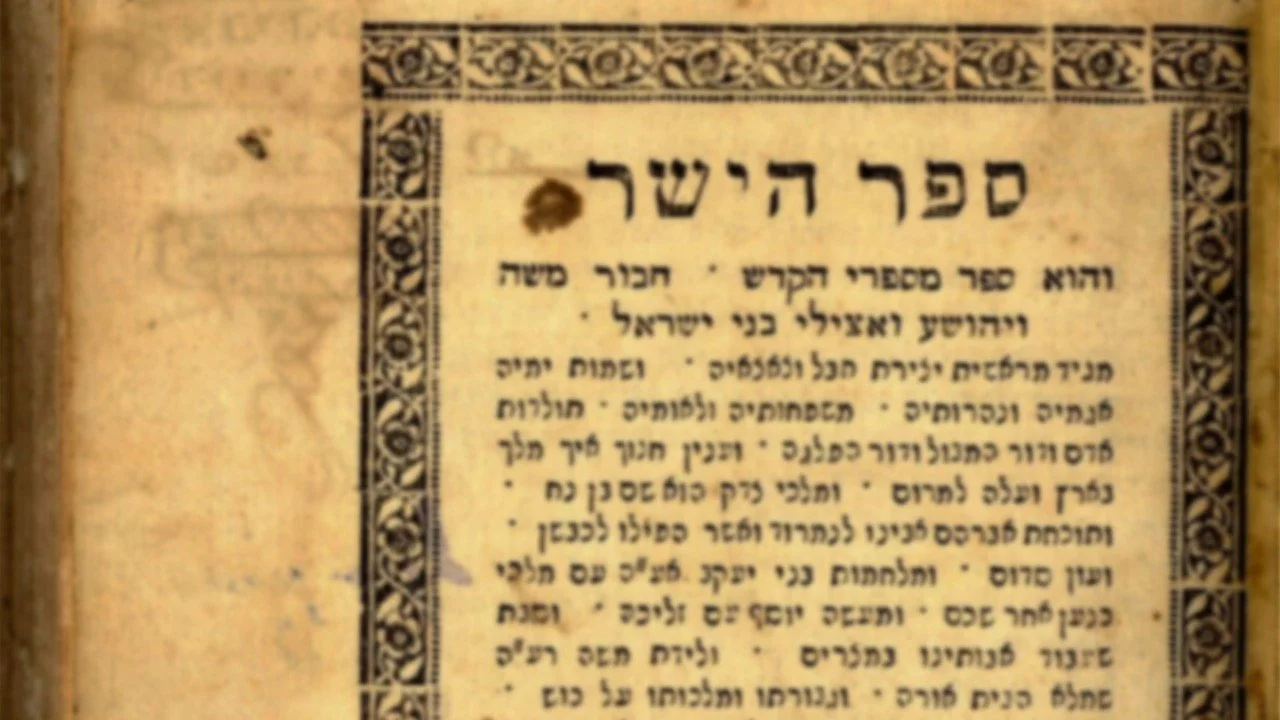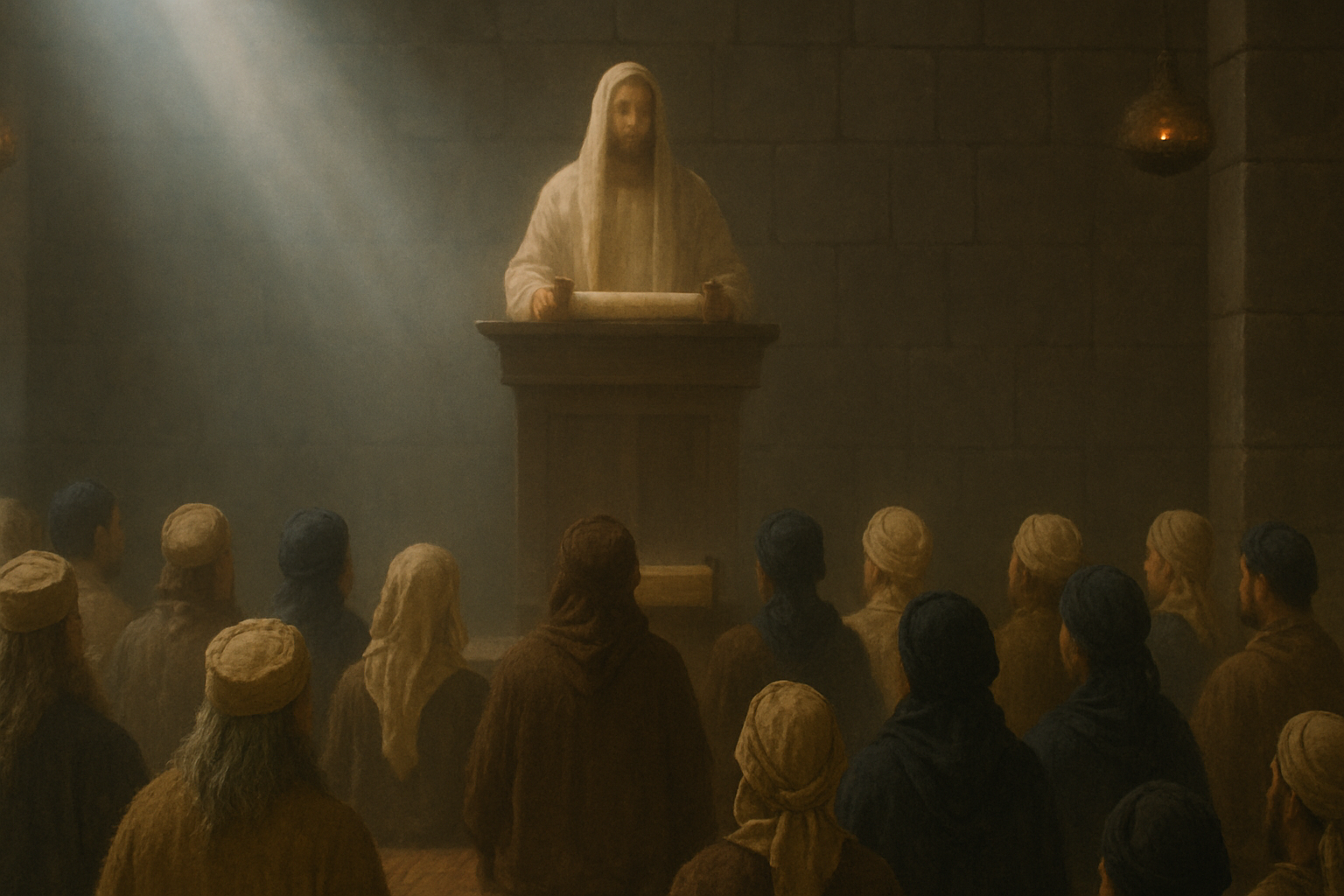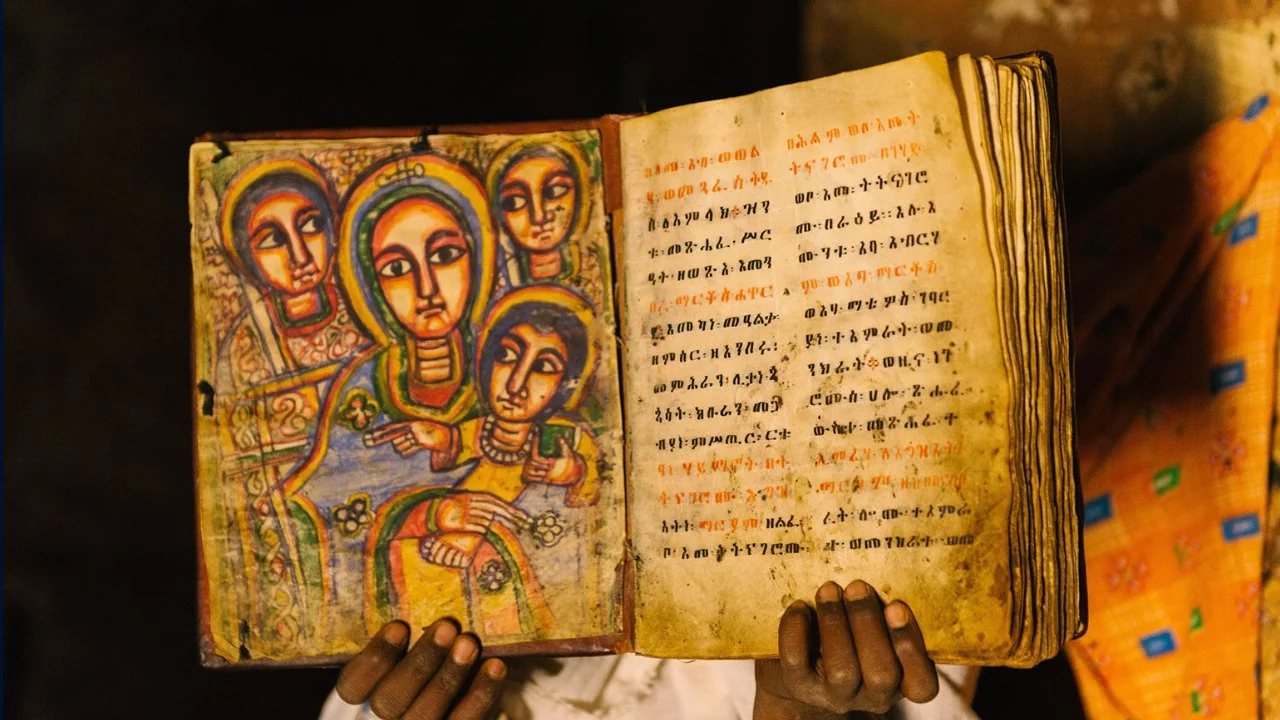Author: David Wilber
Does God approve of polygamy? Some Christians think so. Larry Solomon of the infamous Biblical Gender Roles blog writes, “God never condemned polygamy, but rather he regulated it which means he approved of it.”[1]
Besides Solomon’s conclusion being a non sequitur (God also regulated wages earned from prostitution in Deuteronomy 23:18, but obviously that doesn’t mean God approved of prostitution), scholars dispute the claim that God never condemned polygamy. Numerous biblical passages, which I cover extensively in my book, demonstrate that God undoubtedly disapproves of polygamy. In this article, however, I will focus on a particular commandment in the Torah that I believe prohibits polygamy directly.[2]
Here is the commandment:
You shall not marry a woman in addition to her sister as a rival while she is alive, to uncover her nakedness. (Leviticus 18:18)
וְאִשָּׁה אֶל־אֲחֹתָהּ לֹא תִקָּח לִצְרֹר לְגַלֹּות עֶרְוָתָהּ עָלֶיהָ בְּחַיֶּֽיהָ׃
Traditionally, this verse has been understood as prohibiting only sororal polygyny—that is, a polygamous marriage between a man and two women who are sisters. The implication of such an interpretation is that a man cannot marry his sister-in-law but polygamy in general is permitted. However, historical and textual evidence suggests that Leviticus 18:18 may prohibit polygamy across the board. Let’s examine the evidence.
Historical Evidence
Ancient Jewish commentary may shed some light on the meaning of Leviticus 18:18. We know that at least one Jewish community around the time of the Messiah (i.e., the Qumran community) understood Leviticus 18:18 as a prohibition against not merely sororal polygyny but polygamy generally. For instance, among the Dead Sea Scrolls is a document known as the Temple Scroll, which appeals to Leviticus 18:18 as a proof text against the practice of polygamy:
He may not take a wife from any of the nations. Rather, he must take himself a wife from his father’s house—that is, from his father’s family. He is not to take another wife in addition to her; no, she alone shall be with him as long as she lives. If she dies, then he may take himself another wife from his father’s house, that is, his family.[3]
This passage from the Temple Scroll is an expansion of Deuteronomy 17:14-20. The author interprets “he shall not acquire many wives for himself” in Deuteronomy 17:17 as a prohibition against polygamy, and he alludes to Leviticus 18:18 to make his point. As David Instone-Brewer explains, “the Temple Scroll says, the king may only marry an Israelite and may only take one wife. In order to justify the interpretation ‘one wife’ rather than ‘few wives,’ the Temple Scroll alludes to Lev. 18.18 with the phrase ‘all the days of her life.’”[4]
Additionally, in the Damascus Document, the Qumran community charges their opponents with committing various sins, including polygamy: “They are caught in two traps: fornication, by taking two wives in their lifetimes although the principle of creation is ‘male and female He created them.’”[5] Once again, this passage reveals that the Qumran community interpreted Leviticus 18:18 as a ban on polygamy generally. As Instone-Brewer remarks:
The law of Lev. 18.18 (according to the Qumran exegetes) concerns a man who has a wife and wants to take another, which is prohibited unless the first wife has died … We can see that this interpretation was in the minds of the Qumran exegetes in the way they summarize the teaching of Lev. 18.18 with the words “taking two wives during their lives.” This phrase reminds the reader that Lev. 18.18 is emphatically speaking about being married to two wives at once … This explanation is confirmed considerably by the Qumran texts which show that divorce was permitted. Therefore this exegetical argument does not prohibit divorce or remarriage at Qumran, but is directed solely at the practice of polygamy which the Qumran exegetes considered to be unlawful.[6]
In light of the ancient commentary from Qumran, scholars have revisited the biblical data itself to see if Qumran’s interpretation has textual validity. Italian scholar Angelo Tosato thinks that it does: “Qumran’s interpretation of Leviticus 18:18 is not only correct but even more faithful to the original sense than the interpretation commonly given today.”[7] Several points can be given to support Tosato’s assertion.
Textual Evidence
First, Leviticus 18:18 reads, “You shall not marry a woman in addition to her sister as a rival while she is alive, to uncover her nakedness.” In Hebrew, “a woman in addition to her sister” is ishah el-achotah, which literally means “a woman to her sister.” As Richard Davidson notes, everywhere else it occurs in the Old Testament,[8] this phrase is always “used idiomatically in the distributive sense of ‘one in addition to another’ and nowhere else refers to literal sisters.”[9] Given this fact, the word “sister” in Leviticus 18:18 should be interpreted “broadly as any woman in addition to a first wife, in accord with idiomatic use of the same expression elsewhere to mean ‘one [feminine] in addition to another [feminine].’”[10] So, if we interpret this Hebrew expression the same way it is used everywhere else in the Old Testament, then as Jay Sklar puts it, “verse 18 would be prohibiting polygamy in general: ‘Do not marry one woman in addition to another.’”[11]
Second, the reason for the commandment, which was to prevent rivalry between the two wives, supports the interpretation that this verse forbids polygamy generally. Rivalry would be the consequence of any polygamous union, not merely sororal polygyny. For instance, the language “as a rival” used in Leviticus 18:18 is also used in 1 Samuel 1:6 regarding the contentious relationship between Elkanah’s wives, and there is no indication that these women were sisters. As Tosato remarks:
This motivation shows that the act legislated against is deemed criminal, not in itself (and thus it is not a case of an incestuous union; nor more generally of a sexual union retained intrinsically perverse), but is deemed criminal in relation to the man’s first wife who would be damaged. In addition, the harm which the law wants avoided is such (rivalry, enmity) that any woman (and not necessarily a sister of the first wife) is capable of causing.[12]
Third, because it occurs directly after commandments concerning incest (Leviticus 18:7-17), Leviticus 18:18 is commonly understood within the realm of prohibiting sexual relations between closest relatives. Thus, traditionally, “sister” in verse 18 is understood literally. However, scholars point out that there is a literary break between verses 17 and 18. Leviticus 18 presents two separate units of laws—the first unit dealing specifically with laws prohibiting various incestuous relationships, and the second unit dealing with laws governing sexual morality generally. Verse 18 is part of the second unit of laws. This indicates that verse 18, like verses 19-23, does not necessarily have to do with prohibiting a type of incestuous relationship. Paul Copan explains:
Each verse in 7-17 begins identically, starting with the noun “the nakedness (of) [erwat],” and it leads up to the command, “You shall not uncover ____’s nakedness.” Also, in each of these verses (except v. 9) an explanation is given for the prohibition (e.g., “she is your mother”); this explanation isn’t found in verse 18, which we would expect if it were an incest prohibition. By contrast, each verse in 18-23 begins with a different construction. Even if you don’t read Hebrew, you can truly just glance at the text and immediately see the difference in structure starting with verse 18. Verses 18-23 each begin with what’s called the waw conjunctive (like our word “and”) followed by a different word than “nakedness” (erwat); also, instead of the consistent use of the negative (lo) plus the verb “uncover” (tegalleh, from the root galah), as in 7-17, here the negative particles are used before verbs other than uncover. Why are these contrasts important? In verses 6-17, we’re dealing with kinship bonds while verses 18-23 address prohibited sexual relations outside of kinship bonds.[13]
Fourth, if the author intended Leviticus 18:18 to be a prohibition against sororal polygyny only, he could have done so more clearly by using the conjunction “and (וְ)” instead of the preposition “to (אֶל),” so that the verse would say “a woman and her sister,” as in the preceding verse (“a woman and her daughter”). Instead, as Sklar remarks, he “uses the phrase ‘a woman in addition to her sister,’ which was a common expression that did not refer to relatives, except by coincidence.”[14] That is, the particular grammar used in Leviticus 18:18 is not what we would expect if the verse was intended to describe two women who are sisters.
Fifth, unlike the previous laws concerning incest, Leviticus 18:18 contains a time limitation. As Davidson explains, the command against taking ishah el-achotah “applies only while the first one is alive. This is in stark contrast to the laws dealing with nearness of kin, which have no such temporary limitation.”[15] Thus, once again, Leviticus 18:18 appears to be separate in nature from the laws concerning incestuous relationships. This lends support to the interpretation that Leviticus 18:18 prohibits polygamy generally.
A Possible Objection
Some might argue that Leviticus 18:18 cannot be a prohibition against polygamy generally because no legal punishment is given for having more than one wife. While it is true that the Torah doesn’t prescribe legal consequences for polygamy, a commandment against polygamy wouldn’t be unique in that regard. For instance, the commands against hating someone (Leviticus 19:17) and coveting (Exodus 20:17) have no civil punishment, but the lack of legal consequences for transgressing those commandments doesn’t invalidate them. Moreover, the fact that no punishment is given for transgressing Leviticus 18:18 further distinguishes this law from the anti-incest laws of verses 7-17. Leviticus 20 reiterates the anti-incest laws of Leviticus 18:7-17 and lists the punishments for transgressing them. However, the commandment in Leviticus 18:18 is absent from this list, perhaps indicating that it is not merely another form of incest but a law against polygamy across the board.
Regarding why polygamy goes unpunished within the Torah legal system despite its being morally condemned in Leviticus 18:18, Gordon Hugenberger suggests that “Leviticus 18:18 can be categorized as a lex imperfecta, a law which prohibits something without thereby rendering it invalid (reflecting a society which would have lacked the requisite means of enforcement in any case).”[16] In other words, practically speaking, carrying out a civil punishment for transgressing this law would have been difficult to enforce in the ancient world. Thus, Leviticus morally prohibits polygamy, but tolerates it from a civil standpoint in the sense that it provides no penalties for transgressing the commandment. However, whatever the reason may be, the fact that no legal consequences are given for transgressing Leviticus 18:18 gives no basis for rejecting the law from a moral standpoint.
Aside from that objection, critics often argue that this proposed interpretation of Leviticus 18:18 contradicts other passages in the Torah that seem to allow for polygamy. Once again, see my book for a fuller treatment of this topic in the Scriptures. I would argue that my proposal harmonizes Leviticus 18:18 with the rest of Scripture much better than the traditional interpretation.
In conclusion, the textual evidence seems to align with the Qumran community’s interpretation of Leviticus 18:18. Contextual, exegetical, and grammatical considerations reveal that Leviticus 18:18 prohibits marriage to not only two blood-related sisters at the same time but also any two (or more) women at the same time. In other words, Leviticus 18:18 prohibits polygamy. Of course, this interpretation aligns perfectly with God’s original design for marriage as established in Creation. Polygamy is a departure from God’s design in the beginning, which both the Messiah and Paul affirm. Therefore, we shouldn’t be surprised to find a commandment in the Torah that prohibits it.
[1] Larry Solomon, “Was polygamy a sin the Old Testament that God overlooked?,” Biblical Gender Roles (blog), August 14, 2015, https://biblicalgenderroles.com/
[2] Note the limited scope of this article, which focuses specifically on Leviticus 18:18. For a fuller treatment of polygamy in the Scriptures, see David Wilber, Is God a Misogynist?: Understanding the Bible’s Difficult Passages Concerning Women (Lake Wylie, SC: Independently Published, 2020)
[3] 11Q Col. 57:17-19. Translation: Michael Wise, Martin Abegg, Edward Cook, Dead Sea Scrolls: A New Translation (New York, NY: HarperCollins Publishers, 1996), 485
[4] David Instone-Brewer, “Jesus’ Old Testament Basis for Monogamy,” The Old Testament in the New Testament: Essays in Honour of J. L. North, Steve Moyise, ed. (Sheffield Academic Press, 2000), 83
[5] CD 4:20-21. Translation: Wise, Abegg, Cook, 55
[6] Instone-Brewer, “Jesus’ Old Testament Basis for Monogamy,” 85-86
[7] Angelo Tosato, “The Law of Leviticus 18:18: A Reexamination,” QBC Vol. 46 (1984), 208
[8] Exodus 26:3, 5, 6, 17; Ezekiel 1:9, 23; 3:13. Notably, the masculine equivalent of the phrase, ishel-akiw ("a man to his brother"), is also used idiomatically in the distributive sense of "one in addition to another" in every occurrence: Genesis 37:19; 42:21, 28; Exodus 16:15; 25:20; 37:9; Numbers 14:4; 2 Kings 7:6; Jeremiah 13:14; 25:26; Ezekiel 24:23; 33:20.
[9] Richard Davidson, Flame of Yahweh: Sexuality in the Old Testament (Peabody, MA: Hendrickson Publishers, 2007), 196
[10] Roy Gane, Leviticus-Numbers (Grand Rapids, MI: Zondervan, 2004), 440
[11] Jay Sklar, Leviticus (Downers Grove, IL: IVP Academic), 235
[12] Tosato, "The Law of Leviticus 18:18," 207
[13] Paul Copan, Is God a Moral Monster?: Making Sense of the Old Testament God (Grand Rapids, MI: Baker Publishing Group, 2011), p. 113
[14] Sklar, Leviticus, 236
[15] Davidson, Flame of Yahweh, 196
[16] Gordon Hugenberger, Marriage as a Covenant: A Study of Biblical Law and Ethics Governing Marriage, Developed from the Perspective of Malachi (Eugene, OR: Wipf and Stock Publishers, 1994), 118
About David Wilber
David is first and foremost a passionate follower of Yeshua the Messiah. He is also a writer, speaker, and teacher.
David’s heart is to minister to God’s people by helping them rediscover the validity and blessing of God’s Torah and help prepare them to give an answer to anyone who asks about the hope within them (1 Peter 3:15)…












